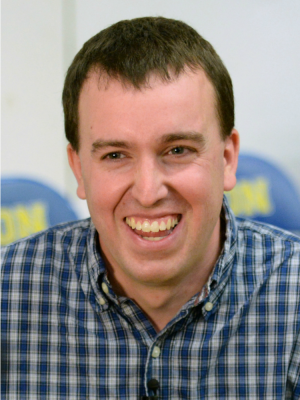
Peter Arseneault understands that technology skills are key to competing in a global economy. Known at Bacon Academy for bringing project-based technology education into the 21st century, Arseneault reaches all of his students, including those who face the most challenges, and motivates them to graduate and go on to successful careers. His engaging teaching methods and ability to make the skills learned in the classroom relevant to everyday life have made tech education attractive for students of all backgrounds and interests.
Addressing the changing demands of today’s educational landscape, Arseneault developed two new classes—Technology Repair as well as Science and Alternative Energy co-taught with a biology teacher.
In the alternative energy course, his students pair the science behind alternative energy sources with the hands-on application of building solar panels, wind turbines, and geothermal heating and cooling systems. Frequently working in teams to develop innovative solutions to real-world problems, Arseneault’s students developed an energy-generating panel built from recycled materials and built their own solar heaters.
In his automotive tech class, every problem becomes a learning experience. Students repair engines for community members, perform maintenance on teachers’ cars and often work on their own cars during study hall. There are waitlists for all the classes that Arsenault offers.
The enthusiasm and diligence of Arseneault’s students are reflected in their dramatic improvement on the career and technical education (CTE) assessment over a two-year period. His auto tech students went from a 33 to a 40 and his advanced auto tech class students jumped from a 40 to a 55. He has also increased the number of students taking the exam.
Arseneault is community-focused and regularly connects with local businesses to gather materials for educating his students. He reaches out to large businesses to provide exploratory opportunities for students and uses these connections to facilitate regional professional development for colleagues in surrounding schools. This allows educators to understand the demands their students will face in the real world. Colleagues appreciate the countless hours he spends coordinating the Perkins grant, which has helped to purchase 3D printers, graphics software and facilities for the school’s food services courses.
Arseneault graduated with a Bachelor of Science in technology education in 2007 from Central Connecticut State University. He received his master's in 2011 through the Master of Science in Education in Inclusion Education program at the University of New England.
"Over the course of my young career in education I have had..." (read more)